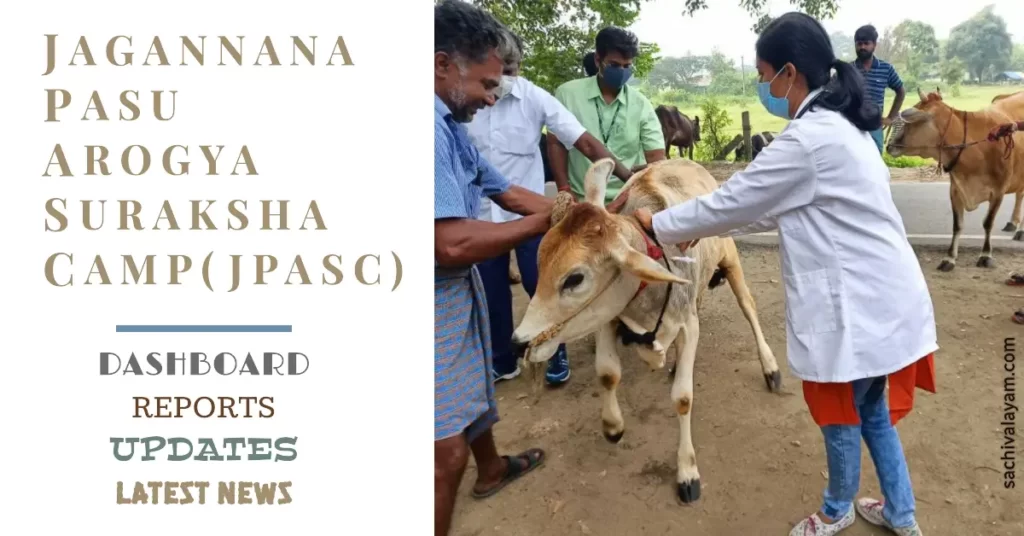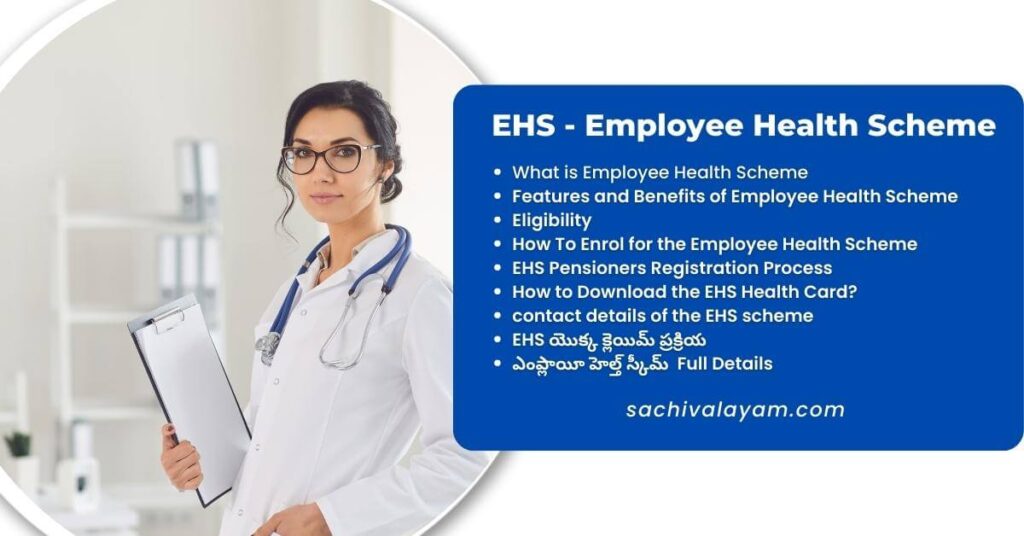Jagannana Pasu Arogya Suraksha camps (JPASC) will be held from December 1st to December 31st, 2023. Four camps will be organized in each mandal, with one mega camp and three medium camps. The detailed SOP for conducting JPASC will be communicated soon.
Table of Contents
TogglePilot Camps in November 2023
One pilot camp will be organized in each of the North Coastal (Vizianagaram), Central Coastal (NTR), and Rayalaseema (Tirupati) regions in November 2023 to assess logistical requirements such as animal turnout, specialist doctors, and medicines before the commencement of Jagannana Pasu Arogya Suraksha camps (JPASC).
| Sl.No | Name of the District | Date of Camp |
|---|---|---|
| 1 | Tirupati | 07.11.2023 |
| 2 | NTR | 10.11.2023 |
| 3 | Vizianagaram | 14.11.2023 |
Vizianagaram, NTR, and Tirupati DAHOs: Guidelines for Organizing Pilot Camps
Preparatory arrangement for the Camps
- Prepare an action plan in consultation with public representatives well in advance.
- Inform all farmers well in advance.
- Give wide publicity through print and electronic media.
- Conduct the camp at a suitable place that can accommodate a large number of animals.
- Ensure that all necessary drugs and medicines are available at the camp.
- Ensure that at least 500 animals attend the pilot camp.
Formation of Veterinary Teams
Each veterinary team will consist of the following:
- Assistant Director of Animal Veterinary Husbandry (AVH)
- Local Veterinary Assistant Surgeon
- Specialist doctors from the Department of Animal Husbandry or Sri Venkateswara Veterinary University (SVVU) in the fields of gynecology, medicine, and surgery
- Intern students from SVVU
- Screening team from Assistant Director of Livestock (ADDL)/Chief Assistant Director of Livestock (CADDL)
General Arrangements for the camp
Minimum Requirements for Jagannana Pasu Arogya Suraksha Camps (JPASC) Pilot Camps
| Sl.No | Description | Quantity |
|---|---|---|
| 1 | Shamiyana | 500 people |
| 2 | Tables | 50 |
| 3 | Chairs | 500 |
| 4 | Drinking water | As required |
| 5 | Refreshments for staff | 125 people |
| 6 | Banners and Public Address System | As required |
| 7 | Lunch arrangements | 125 people |
On the Day of Camp
- Inform local public representatives in advance and ensure their participation.
- Invite honorable ministers and honorable public representatives to inaugurate the camps, whenever possible.
- Organize Rythu Sadassus (farmer meetings) alongside the camps to raise awareness of government flagship programs and scientific livestock management.
Jagannana Pasu Arogya Suraksha Camps (JPASC) Counters & Wards
- Registration counter: Farmers can register their animals for the camp here.
- Gynecology ward: This ward is for the treatment and care of female animals.
- Surgical ward: Surgery on animals is performed in this ward.
- Medical ward: Ill or injured animals are treated and cared for in this ward.
- Calf ward: Calves are cared for and treated in this ward.
- Diagnostic counter: Farmers can get their animals diagnosed for various diseases and conditions at this counter.
- Drug distribution counter: Farmers can get medicines for their animals at this counter.
Jagannana Pasu Arogya Suraksha Camps (JPASC) Procedures
- Registration: Farmers register their animals for the camp at the registration counter.
- Triage: Based on the animal’s history, it is assigned to the appropriate ward (gynecology, surgical, medical, calf, or diagnostic).
- Examination and treatment: Specialists in the respective wards examine the animals and administer medicines as needed.
- Drug dispensing: Prescribed drugs are issued to farmers free of cost at the drug distribution counter.
- Nutritional supplements: Pregnant and lactating animals receive nutritional supplements.
- Vaccinations: Preventive seasonal vaccinations are administered, with a focus on brucellosis.
- Deworming: Animals are dewormed based on an examination for parasitic infestation.
- Diagnostic tests: All diagnostic tests are performed by staff from YSR Constituency level disease diagnostic labs.
- Spot disease diagnosis: All diseases except culture tests and antibiotic sensitivity tests are diagnosed on the spot and treated at the time of follow-up.
- Reproductive disorders, health interventions, and surgical interventions: All reproductive disorders, health interventions, and surgical interventions are performed.
- Major surgery: Animals requiring major surgery are given a date for surgery at the nearby veterinary polyclinic and transported on that date in Dr. YSR Pasu Arogya Seva Ambulances (1962).
- Artificial insemination: Artificial insemination and sex-sorted semen insemination are performed.
Treatment of Follow-up cases
- Concerned Veterinary Assistant Surgeons (VASs) will follow up on treated animals until they recover.
- Sufficient medicines will be available to treat follow-up cases.
- Records will be maintained, with proper acknowledgment from farmers who receive medicines during the health camps and thereafter for follow-up.
District Animal Husbandry Officers (DAHOs) and Divisional Deputy Directors will monitor the camps. The details of camps organized, the number of animals treated, and the number of farmers benefited will be reported promptly to the head office.



